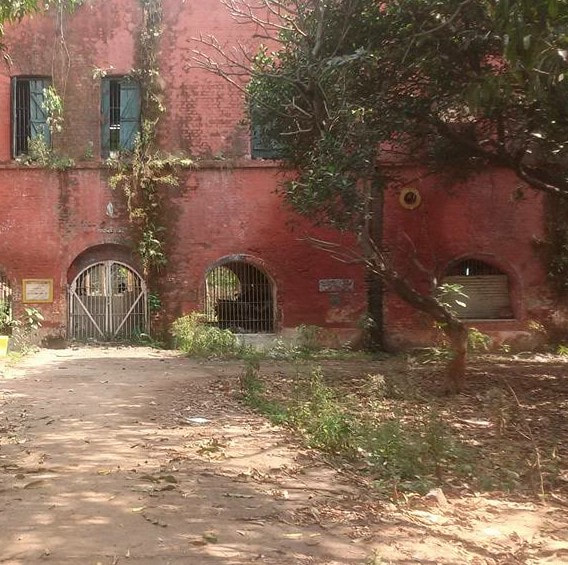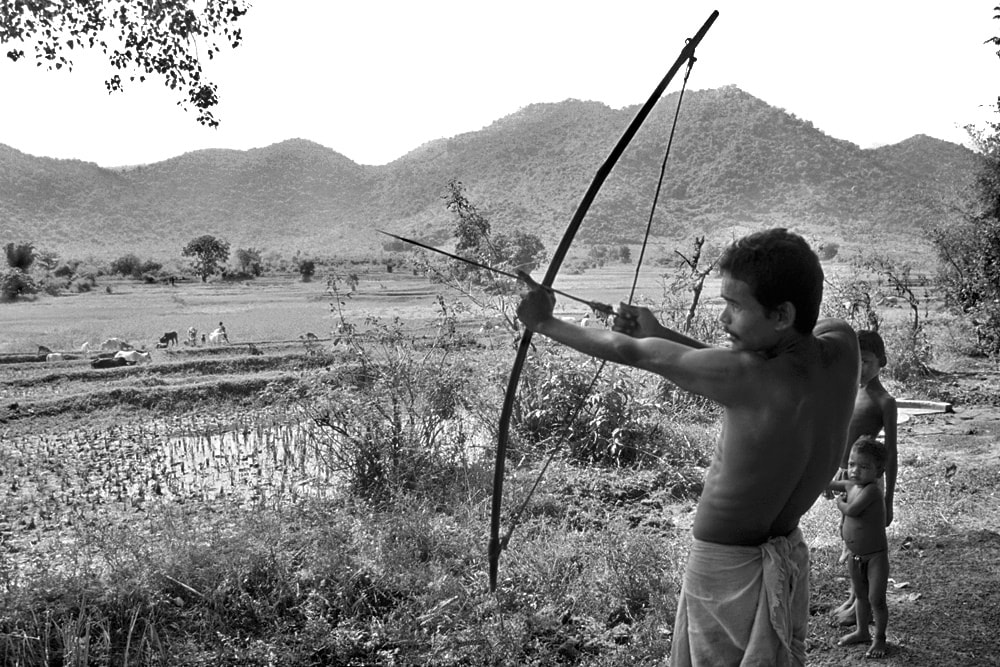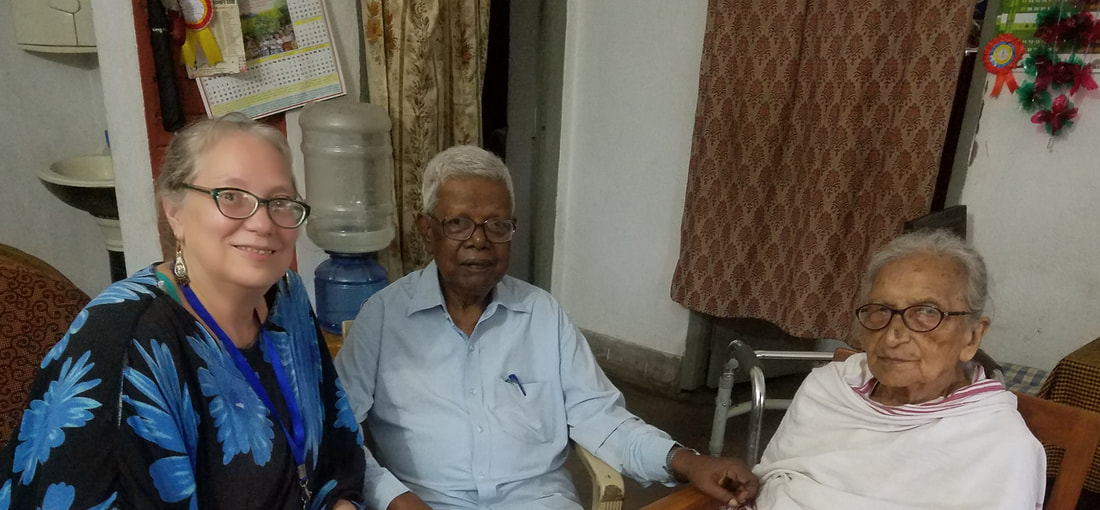|
The first book I have ever written is the biography of my great great granfather, Ferdinand Hahn, a German missionary in Chota Nagpur from 1868-1910. My family in American had little to no memory of him. My research of this forgotten ancestor, led me to learn of the story of the Adivasi and Christians of Chota Nagpur. And in this biography I write to preserve the heritage of both my ancestors and the Adivasi Christians. The book is completed and I have submitted to publishers, hoping that it will be published in 2019. Many stories are forgotten and many sources of heritage are slipping away. However, I found that it is possible to piece the story of a forgotten past together through storytelling. Storytelling, is an interpretation of a few facts. It pieces together little snippets of material to make a beautiful whole, like a quilt. A good story is an authentic story, not necessarily a factual story. In my writing I fill in the holes where facts were not found, based on my interpretation of the facts that were found. I not only understand, but hope that as more information is unearthed, as more stories about the same facts are told, my story will change. I was not a writer, through this process I have become one. I was never good with grammar and language, though I loved to read. Through writing I have come to understand language better, and have improved my writing style. I wish to encourage people to write and write often to grow their skill. However, I also recognize that writing is not the only way to tell stories. There are those who like to tell stories, but hate writing. There are many who tell stories through poetry, song, dance, art and even food and dress. The Gonds have been telling their tribal stories through folk art; the Siddis tell their story through quilting. The Adivasi of Chota Nagpur (eastern India) tell stories through dance and song. Mahasweta Devi told the story of a people through the bow and arrow in her work ‘Choti Munda’s Arrow.” All these elements of culture can be incorporated into storytelling. Many of us have learned stories of our family in the kitchen, watching our grandmother cook, or working along side our fathers, or playing games with other children, or finding an old tree. Everywhere there are stories. Who is the story teller in your family/village/clan/neighborhood? In my family it was my dad who was the storyteller. He tells over and over again stories from his life, as well as folk tales. When my mother was alive they use to argue about the details of the life stories. Through their different perspectives of the same story we children gained a bigger picture of what happened, about who our parents were and what mattered to them. And I am sure we still came up with different interpretations of the same story. As I was writing the biography, my father has been my primary editor. If the story resonated with him as authentic I felt that I was on the right track. I am now in search of other readers with different perspectives to find out how the story resonates with them. This is the true measure of the authenticity of a story. Writing is a journey. The writer asks a lot of questions and searches for answers. I had to figure out where to search, and sometimes I would find answers in the least likely place. It is like walking through the jungle, you never know what is ahead. The one thing I do not like about writing is that it can be isolating and lonely. Those people's who live in jungles therefore rely on community. This is why I also want to encourage people to create writing communities. I have found academic writing helpful to storytelling. The last writers workshop I attended was a group of Anthropologists who began to write novels based on their anthropological studies. They collect people’s stories and what they write, help all of us learn more about culture and humanity. I also appreciate Psychology and the various studies of Identity, emotions, and behavior. During my research, I relied on this body of work to enhance my story telling. In my journy, I utilized my local university that provided several writing workshops. Here I learned from others how to write. I was able to have others critique my work and learned how to appreciate finding out that something that sounded very good to me, did not communicate what I hoped. Writing is finding your own voice and learning how to effectively communicate. So this is why we I gathered other's interested in preserving their heritage when I arrived in Ranchi this last time, to create a writing community that would together explore finding, telling and preserving the stories of our heritage. At this first gathering of Heritage Writers on 5 November 2018 at the HRDC on the GELC church complex in the heart of Ranchi we had twelve zealous writers who shared their vision for preserving their heritage. Together we gathered ideas and discussed: What stories are important to tell? Where can we find these stories? What methods can be used? What medium is the best for communicating the stories? Who is the audience? I will share some of this conversation in future blogs. The community of writers interested in preserving Christian and Adivasi heritage in India is growing. If you wish to join this community you may contact me through this blog or through [email protected].
0 Comments
My most recent visit to Ranchi in Jharkhand, India was the most inspiring of visits. Having completed my book, I still have to write my conclusion. I wanted to wait till after this visit because I would be learning more about a facinating part of their history that they are beginning to celebrate. In 1919 the Adivasi church that my ancestors were instrumental in founding gained its autonomy. One of the first native churches in India, well before national independence, to receive its independence (from missionary control). The intention to have a self-sufficient, self-administrating church was the original intention of the Gossner missionaries, including my great great grandather, Ferdinand Hahn. I attended a conference this time, as the church begins to revisit and revision the significance of this autonomy. I learned a great deal and was glad to be part of such important conversations. I do feel much better prepared to write the conclusion that will reveal that the vision Ferdinand Hahn had for the church and the people to whom he devoted his life, pretty much came to fruition.
While I was there I thought I would see if there were others interested in Preserving our Heritage. When I first came two years ago, I had hoped that I would be able to learn by talking to people about their history. I discovered that many people, like me, had little knowledge of their heritage. Even so I also saw that there was a keen interest in learning their heritage. My hope is that my book, and the books my father translated into English of histories of the church written in German, will open people to discover their own heritage. For in writing about my great great grandfather, I also wrote the story of their heritage. I feel that there is still much more work to be done. The culture of the Christian Adivasi continues to be predominantly oral. The generation and keepers of the old stories are going away. If this generation does not preserve stories, many of them will be lost. While I was there I met with twelve others who were keen to write more about their heritage, and to create a community of writers that will encourage each other in the process. There are easily twice as men who I met who are keen to join such a community. I have decided to start a new blog that will follow the journey this writing community from Ranchi will take as they venture into discovering, writing and preserving their heritage stories. Each blog will be from our conversations, with some samples of writing. |
Click here to learn more!
AuthorMary Girard with Bishop Nirmal Minz and his wife, Parakleeta, two remarkable leaders of the Adivasi Christians of Jharkhand. They are writer's themselves and have encouraged me much in my pursuit as a writer and have inspired many others. I am an author of my first book that is seeking publication. Among the Original Dwellers: Remembering Ferdinand Hahn, tells of the life story of my great great grandfather who was a missionary from 1868-1910 in Chota Nagpur. In writing his story I discovered the story of the Adivasi of the region who were also impacted by his life. I am now committed to inspiring others to learn and write about their Christian Adivasi heritage. Archives
April 2022
Categories |



 RSS Feed
RSS Feed